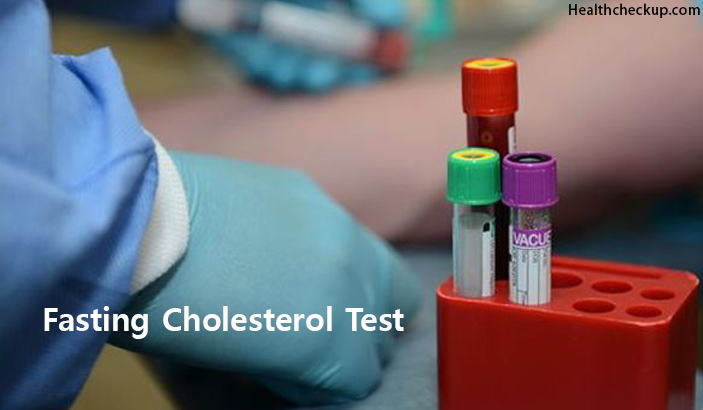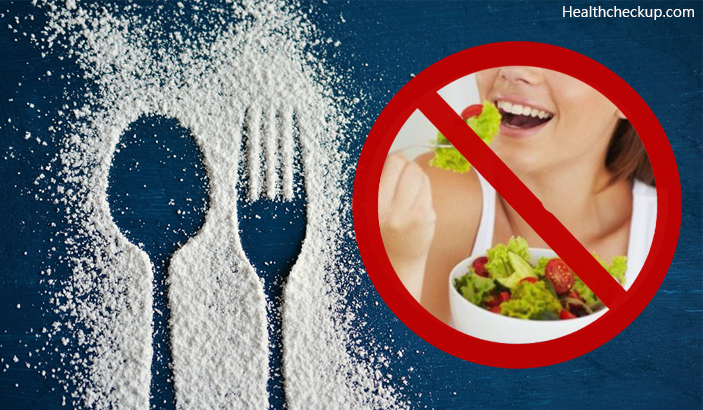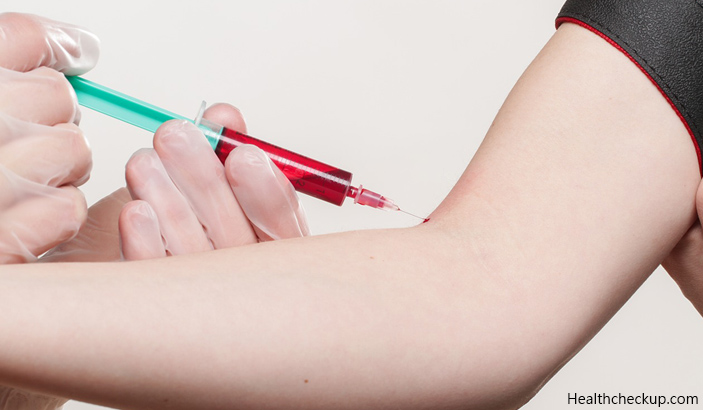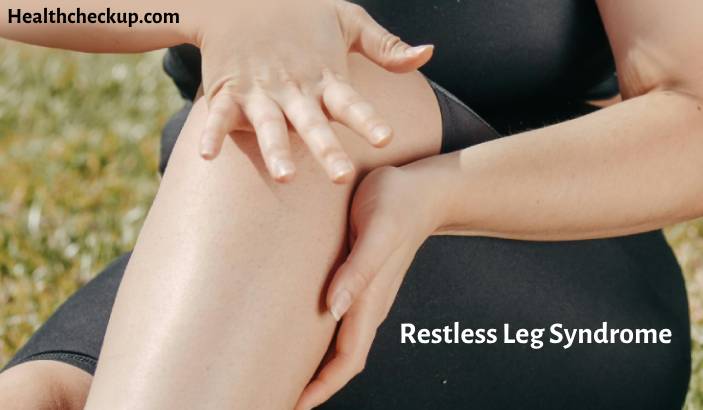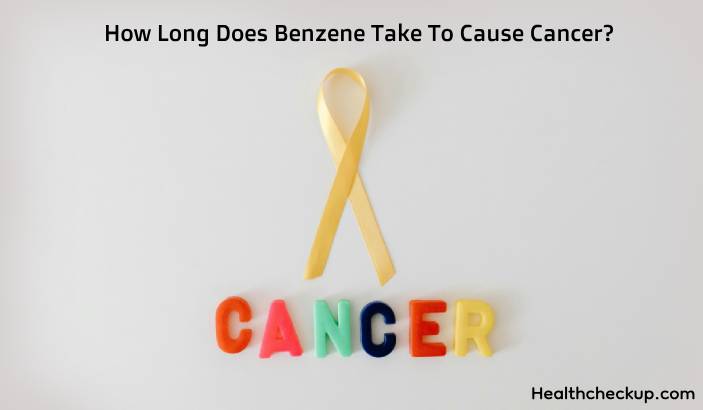Cholesterol is a waxy, fat-like substance present naturally in the body. It plays an important role in the body by helping produce many hormones including Vitamin D and the bile acids that help in the digestion of food. Only small amounts of cholesterol are required by the body for its normal functioning and any excess amounts of cholesterol will get deposited in the artery walls throughout the body. This will lead to the narrowing of the arteries supplying blood to the heart resulting in lesser blood flow to the heart causing angina and heart attack. The same happens to the carotid arteries that supply blood to the brain causing a stroke. High cholesterol itself does not show any symptoms, and therefore a fasting cholesterol test is required to determine if your body cholesterol levels are high and assess the risk of developing heart or brain diseases.
The Significance of Fasting Cholesterol Tests
Fasting blood tests are mainly used to measure cholesterol and triglyceride levels in the blood. This test is also known as lipoprotein profile or lipoprotein analysis. The test measures the following:
- The total amount of cholesterol present in your blood
- The HDL levels, HDL stands for High Density Lipoprotein and is often referred to as the good cholesterol
- The LDL levels, LDL means Low Density Lipoprotein, and it is considered to be bad cholesterol
Testing blood cholesterol levels helps to make dietary and lifestyle changes and helps minimize the risk of stroke, heart attack and peripheral artery diseases in people.
Why do you have to Fast before a Cholesterol Test, and for How Long Should you Fast?
It is important to before a fasting cholesterol test, because fasting allows the accurate measurement of blood lipid levels. The doctor will instruct you to fast for about 14 hours before you get the test done, and you aren’t allowed to eat or drink anything during the fasting period except for water. Also, it is important to remember that you do not consume alcohol for 48 hours before the test.
Foods and Drinks to Avoid Before Fasting Cholesterol Test
As the cholesterol test is aimed at providing an accurate assessment of a patient’s risk of developing heart disease, the person should continue to follow the normal diet he follows before the test, and making any last minute changes before the test will only result in getting inaccurate results from the test. Patients are, however, advised to avoid any foods and drinks that may cause unnecessary boost to the levels of HDL, LDL and triglycerides the night before the test. Foods containing high amounts of sugar and which are high in calories and fat should be avoided the night before the test, because triglycerides are highly sensitive to such foods, and having such foods on the night before the test may result in inaccurate test results. Foods rich in saturated fat, transfat and cholesterol will boost cholesterol levels and should be avoided just before the test.
Who Should Get a Cholesterol Test?
As mentioned earlier, high cholesterol levels do not show any symptoms, therefore, adults at an average risk of developing heart disease should undergo a fasting cholesterol test every 5 years, starting at the age of 18.
Other People who Should Undergo the Test are:
- Those who have a family history of high cholesterol or heart attacks
- Obese and overweight people
- Physically inactive people
- Diabetics
- People on a high-fat diet
- Smokers
- Men older than 45 years and women older than 55
Also, people with a history of heart attack and stroke require their blood cholesterol levels to be checked regularly to constantly monitor the effectiveness of the treatment their undergoing.
The Test Procedure
During the procedure, a blood sample is drawn from a vein in your arm. To draw the blood sample, a tourniquet or an elastic band is tied around the arm, just above the elbow. A needle is inserted into a vein in your arm near the inside of the elbow. A small amount of blood is withdrawn and collected in a vial after the needle is positioned. The needle is removed after the required amount of blood is drawn into the vial, and the tourniquet is removed from the arm. Then, a band-aid is placed over the puncture site to stop any bleeding.
The Entire Procedure Takes around 2 to 3 Minutes, and it is Relatively Painless.
You may not be required to take any special precautions after the test is done and can carry out your normal activities, including driving back home from the hospital or laboratory. You can carry a snack with you while going for the procedure, so you can eat it after the procedure since you’ve fasted for a long time before the test procedure. Your doctor may discuss resuming any medication that was withheld before the blood test.
Interpreting the Results of the Fasting lood Cholesterol Test
The interpretations of the cholesterol and triglyceride levels in the blood are based on the guidelines provided by different medical organizations all over the world. In this article, we will discuss the guidelines provided by the American Heart Association.
Total Cholesterol
- A reading of less than 200mg/dL is desirable
- Patients with a total cholesterol value of 200 to 239 mg/dL are considered to be at borderline high risk.
- Patients with a reading over 240mg/dL are considered high risk patients.
HDL
- Men with a reading of less than 40mg/dL and women with a reading of less than 50 mg/dL are at an increased risk of heart disease.
LDL
- A reading of less than 100mg/dL is optimal.
- A reading of 100 to 129mg/dL is near optimal or above optimal.
- A reading of 130 to 159mg/dL is considered borderline high.
- A reading of 160 to 189mg/dL is considered high.
- A reading of 190mg/dL and above is very high.
Triglycerides
- A reading of less than 150mg/dL is considered normal.
- A reading of 150-199mg/dL is borderline to high.
- A reading of 200-499mg/dL is high.
- A reading of more than 500mg/dL is very high.
If the results of your fasting blood cholesterol test show high cholesterol values, you needn’t be discouraged, but you must stay on guard. Lifestyle changes such as quitting smoking, exercising regularly and following a healthy diet will all help in bringing your cholesterol levels down. If your doctor thinks that just lifestyle changes aren’t enough for bringing down cholesterol levels, you may be prescribed some cholesterol-lowering medications. Talking to your doctor about the lifestyle changes required and the risks involved with taking the cholesterol-lowering medications is very important to keep you in good health and reducing the risk of health diseases.
Medically Reviewed By

I am an experienced Medical/Scientific writer with a passion for helping people live a happy healthy life. My thirst for writing has followed me throughout the years – it is there when I wake up, lingering at the edges of my consciousness during the day, and teases me at night as I go to sleep.


